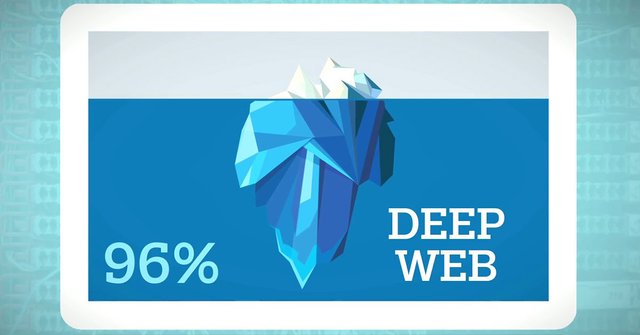
Any fool knows that ranking number 1 in Google is where it’s all at. It’s where the money is. But despite this, I would like to introduce you to some hidden caves inside the mountain which I like to call, ‘the 3 internets’.
1- Surface Web
With around 130 trillion pages and growing, surface web is the part of the internet we are most familiar with. It’s where all our favourite websites can be found – BBC News, Facebook, Compare The Market.com, Amazon etc… - visible to everyone. These are all the websites that can be indexed (listed) by search engines, the best known being Google.
Surface web is where every ambitious business is hiring top web designers and SEO’s to fight for top spots in the searches to rank above their industry rivals and competitors. It’s the paid and organic searches. It’s social media. It’s blogging. It’s mobile friendly. It’s annoying popup windows and targeted adverts. It’s the place to be if you’re a legit business that wants to showcase your products and services and win new customers.
There are 100 billion searches each month in Google – each web page given a unique ranking order in the search engine result pages (SERPS), determined by Google’s complex algorithm, PageRank (named after co-founder Larry Page).
Although Google regularly updates it’s visual design and algorithms, there is nothing new going on here – the core principles have been the same for the past decade.

Beyond the surface lies another layer, so let’s take a look at what we call the deep web.
Just to be clear before we move on – Google is only a website, it is not the internet.
2- Deep Web
The deep web (or hidden web) is the largest part of the internet and is anything a search engine cannot index. It is estimated that content on the deep web is 500 times larger than surface web, although its full size is difficult to measure.
A lot of deep web content is not intended for general public access. This includes full websites, restricted areas of websites (login areas for banks for example) and member portals. Company intranets and development sites which organisations do not want indexing are also hidden from search engines in this way.
As with surface web, standard browsers such as Chrome and Internet Explorer are used to view these types of websites. But, to visit a deep web site you need to enter its full address (URL) in the web browser.
The deep web is also a mix of sub-cultures, all looking for people like them. For different reasons, including anonymity, security or exclusivity; the deep web can a provide sense of community for those who do not wish to be easily found.
Ok, stay with me now, we’re going even deeper underground to a place where there are no signposts and no oxygen.
3- Dark Web
“Tread very carefully if you’re visiting the dark web” someone once told me. It was sound advice – advice which I am now passing on to you.

The dark web is a small sub-set of the deep web that is inaccessible through standard web browsers.
Access to the dark web is achieved using special tools and browsers - the best known of which being TOR (The Onion Router). Unlike the web addresses we are familiar with (http://www.bbc.co.uk), Tor sites are not human readable words – they also end with a .onion extension. An example of dark web address would be something like http://lchidifyiqn4ldwq.onion
Dark web has reputation for being nefarious and associated with criminal activities and black markets (such as Silk Road and Alphabay). Whilst illicit activity undoubtedly occurs in the dark web, there are also legitimate purposes. For example, government and military use this secure method for communications, which also provide anonymity for activities like whistleblowing where consequences can be severe for those uncovering and calling out issues or crimes.
Whilst the dark web receives negative press for its involvement in criminal activity, other users like it simply because it provides the anonymity of an encrypted network – it is not illegal to protect your privacy, after all!
In 2014, Facebook released a TOR version of their platform, who have since announced it has a “sizeable community”.
If you would like to learn more about the dark web or you like the Bill and Ted movies, a good documentary to watch is ‘Deep Web’. Produced by Alex Winter (Bill) and narrated by Keanu Reeves (Ted).
For more information about TOR and accessing the dark web, visit the onion router site.
So… not exactly 3 internets, rather 3 ways of being lost (or found) – whichever way you want to look at it. Happy browsing!
Very informative dude, cant wait to read more.
Downvoting a post can decrease pending rewards and make it less visible. Common reasons:
Submit
Congratulations @adiyoung! You received a personal award!
You can view your badges on your Steem Board and compare to others on the Steem Ranking
Vote for @Steemitboard as a witness to get one more award and increased upvotes!
Downvoting a post can decrease pending rewards and make it less visible. Common reasons:
Submit